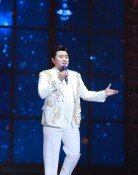[Opinion] Mankiw`s Principles of Economics
[Opinion] Mankiw`s Principles of Economics
Posted November. 03, 2007 09:09,
These days, the top four best-selling economics college textbooks include Principles of Economics by Mankiw, Principles Of Economics by Robert H. Frank and Ben S. Bernanke, Economics by John Taylor, and Economics by Paul Krugman.
All of the authors, otherwise known as the five mentors of economics, are Americans, which clearly demonstrates the nations supremacy in the field. Among the four books, Mankiw`s Principles of Economics is the most popular and widely used text in economics classrooms, hence placing it on the list of bestsellers.
Ever since 1948, when Paul Anthony Samuelson, Professor of Economics at the Massachusetts Institute of Technology (MIT) in Cambridge, U.S., wrote Foundations of Economic Analysis, this text has served as the most fundamental economics reference for most economists. He sought to clearly demonstrate his theory by utilizing simple graphs and equations, instead of resorting to the rhetorical descriptions and intricate writing style of the time.
However, the introduction of Principles of Economics written by N. Gregory Mankiw, Economics Professor at Harvard University, in 1997, set a new standard in describing mathematical concepts. He used numerous anecdotes and fables in his writing while minimizing the use of mathematics, enabling anyone without knowledge of economics to clearly understand what he was trying to convey. His easy and accessible writing style is even used as an essay textbook for middle school students in Korea.
Although Mankiw was a New Keynesian economist, supporting a bigger role of the government, he supported President Bushs tax cut polices, arguing that the anticipated adverse effects of deficit would not be that serious.
Thank to his claim, he served as chairman of Mr. Bush`s Council of Economic Advisers. Greg Mankiw, who became one of the youngest tenured professors at the age 29 in the history of Harvard University, is the leading academic in currency and financial theory.
For these reasons, he seems to be not content with being recognized as a bestseller author rather than by his academic achievements. The same can be said for the two Korean professors, Kim Gyeong-hwan and Kim Jong-seok who translated Mankiws book.
Many economists chose Principles of Economics as one of the books to recommend to the next president. Reviving the nations economy might not be the priority of a candidate, but the book is worth reading to anyone who runs for the presidency.
If a presidential candidate cannot afford to read the book in its entirety due to busy campaign schedules, he should at least browse the chapter on production and growth, which has many citations of Korean cases. To sum it up, it states, Thanks to high growth rates, Korea has entered the threshold of advanced countries within decades. There is no way that a wealthy country can forever remain as wealthy, just as a poor country would not remain destitute. All depends on their growth rates.
Heo seung-ho, Editorial Writer, tigera@donga.com







